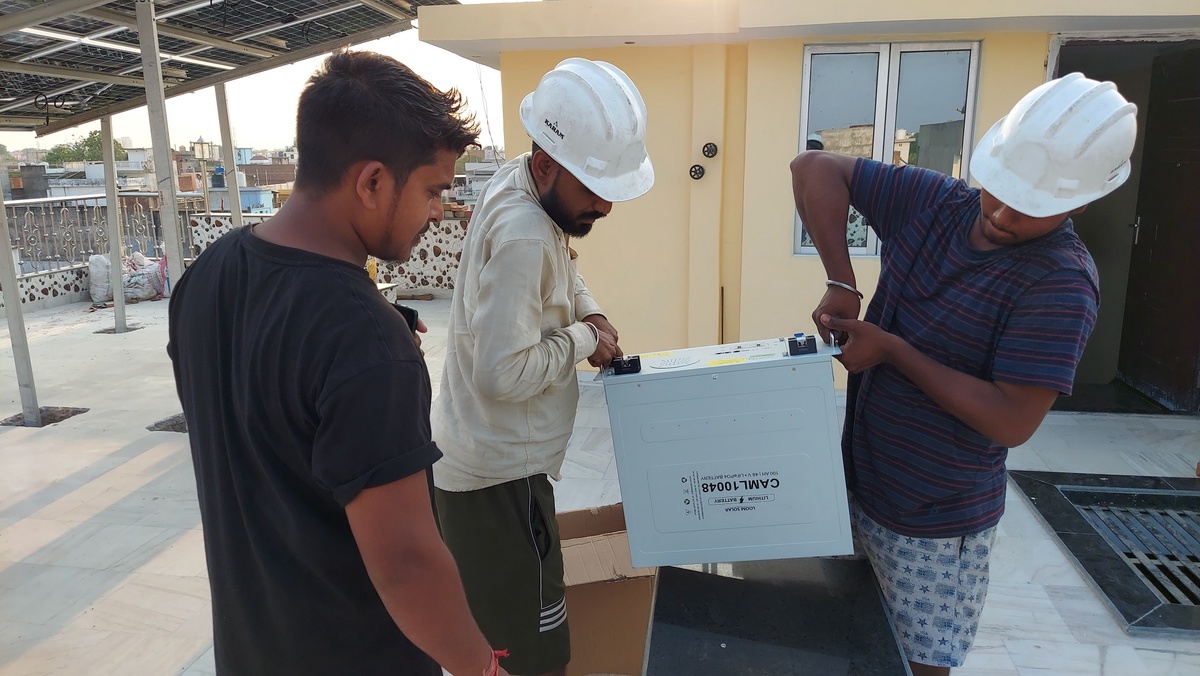How long will an inverter battery last?
The lifespan of an inverter battery depends on various factors, such as the type of battery, usage pattern, maintenance, and environmental conditions. Generally, an inverter battery can last anywhere from 1 to 5 years.
Lead-acid batteries, which are commonly used as inverter batteries, have a limited lifespan of around 3-5 years. However, their lifespan can be extended with proper maintenance, such as regular charging, cleaning the battery terminals, and ensuring proper ventilation.
Best Lithium batteries, which are relatively new in the inverter battery market, have a longer lifespan of around 5-10 years. They are also more efficient, lightweight, and require less maintenance compared to lead-acid batteries.
It is essential to choose a good quality battery and follow the manufacturer's recommendations for maintenance and usage to maximize the lifespan of your inverter battery.
What is an inverter battery used for?
An inverter battery is a type of battery that is specifically designed to be used with an inverter. An inverter is a device that converts DC (direct current) electricity into AC (alternating current) electricity, which is the type of electricity used in most homes and businesses.
Inverter batteries are typically used in places where there are frequent power outages or where a reliable source of electricity is not available. They are commonly used in households, offices, and other commercial settings to power appliances and electronic devices during power cuts.
Inverter batteries are charged using a charger, either through an AC power source or through a solar panel. When the power goes out, the inverter battery automatically switches on and provides power to the connected devices through the inverter. The capacity of the inverter battery determines the amount of power it can supply, and it is important to choose a battery with the right capacity for your needs.
Overall, an inverter battery is an essential component of an inverter system, and it provides backup power during power outages, ensuring that you can continue to use your appliances and devices even when the grid power is unavailable.
SEE ALSO: Inverter Battery for Home
What factors influence the life of an inverter battery?
The life of an inverter battery can be influenced by several factors, including:
- Quality of the battery: The quality of the battery is a major factor that can affect its lifespan. High-quality batteries are likely to last longer than low-quality batteries.
- Charging and discharging cycles: The number of times the battery is charged and discharged can affect its lifespan. Frequent deep discharging and overcharging can reduce the life of the battery.
- Temperature: Inverter batteries are sensitive to temperature changes, and high temperatures can cause the battery to degrade faster. It is important to keep the battery in a cool and dry place.
- Maintenance: Regular maintenance of the inverter battery is essential to ensure its longevity. This includes cleaning the battery terminals, checking the water levels, and replacing the battery if it is damaged or worn out.
- Usage patterns: The usage patterns of the battery can also impact its lifespan. If the battery is used frequently or for long periods, it may wear out faster.
- Overloading: Overloading the inverter can put a strain on the battery and reduce its lifespan. It is important to ensure that the inverter is not overloaded beyond its capacity.
- Brand and model: The brand and model of the inverter battery can also affect its lifespan. High-quality and reputable brands are more likely to provide better performance and last longer.
Overall, taking care of the inverter battery and following the manufacturer's recommendations for usage and maintenance can help extend the life of the battery.
How can I extend an inverter battery’s life?
To extend the life of an inverter battery, you can follow these tips:
- Use a good quality inverter: A good quality inverter will ensure that the battery is not overloaded and will provide the correct charging voltage, which can help to extend the life of the battery.
- Properly size the battery: It is important to choose a battery with the right capacity for your needs. Oversizing or under-sizing the battery can lead to premature failure.
- Charge the battery correctly: It is important to charge the battery correctly and not overcharge or undercharge it. Follow the manufacturer's recommendations for charging the battery and do not charge it beyond its maximum charging capacity.
- Maintain the battery: Regular maintenance is essential to extend the life of the battery. Keep the battery terminals clean and check the water levels regularly.
- Use the battery regularly: Inverter batteries should be used regularly and not left idle for long periods. Using the battery regularly will help to keep it in good condition.
- Avoid overloading the inverter: Overloading the inverter can put a strain on the battery and reduce its lifespan. It is important to ensure that the inverter is not overloaded beyond its capacity.
- Keep the battery cool: High temperatures can reduce the lifespan of the battery. Keep the battery in a cool and dry place, and avoid exposing it to direct sunlight or heat sources.
Overall, taking good care of the inverter battery and following the manufacturer's recommendations can help to extend its life and ensure that it provides reliable backup power when needed.


No comments yet